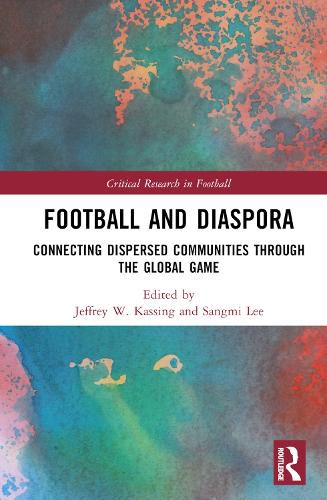Readings Newsletter
Become a Readings Member to make your shopping experience even easier.
Sign in or sign up for free!
You’re not far away from qualifying for FREE standard shipping within Australia
You’ve qualified for FREE standard shipping within Australia
The cart is loading…






This is the first book to examine football (soccer) through the lens of diaspora studies. Presenting case studies from across four continents, it considers how diasporic minorities develop a sense of belonging between their national and transnational ethnic communities through an active participation in football.
Bringing together a cross-disciplinary group of scholars working in anthropology, communication, cultural studies, history, psychology, politics, sociology and sport, it unearths the connections between culture, identities, politics, nationalism, globalization, and how those manifest in the lived experience of diasporic peoples. Against a background of the continued internationalization of sport and pervasive global migration, it explores key themes in the social sciences including migration, acculturation, and assimilation; sport, identity, fandom, and representation; and nationhood, citizenship, and politics. As the book focuses on diverse ethnoreligious groups dispersed around the world, it covers a wide range of geographic locations, with cases addressing the Bolivian, Ethiopian, Moroccan, Zimbabwean, Croatian, Irish, and Basque diasporas.
It is fascinating reading for anybody working in sport studies, diaspora studies, political science, sociology, cultural studies, international history or social history.
$9.00 standard shipping within Australia
FREE standard shipping within Australia for orders over $100.00
Express & International shipping calculated at checkout
This is the first book to examine football (soccer) through the lens of diaspora studies. Presenting case studies from across four continents, it considers how diasporic minorities develop a sense of belonging between their national and transnational ethnic communities through an active participation in football.
Bringing together a cross-disciplinary group of scholars working in anthropology, communication, cultural studies, history, psychology, politics, sociology and sport, it unearths the connections between culture, identities, politics, nationalism, globalization, and how those manifest in the lived experience of diasporic peoples. Against a background of the continued internationalization of sport and pervasive global migration, it explores key themes in the social sciences including migration, acculturation, and assimilation; sport, identity, fandom, and representation; and nationhood, citizenship, and politics. As the book focuses on diverse ethnoreligious groups dispersed around the world, it covers a wide range of geographic locations, with cases addressing the Bolivian, Ethiopian, Moroccan, Zimbabwean, Croatian, Irish, and Basque diasporas.
It is fascinating reading for anybody working in sport studies, diaspora studies, political science, sociology, cultural studies, international history or social history.